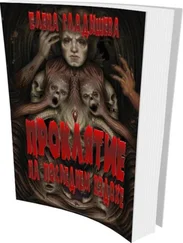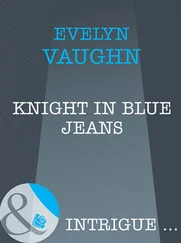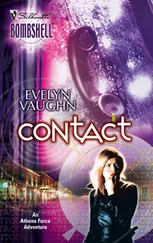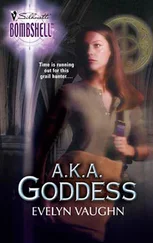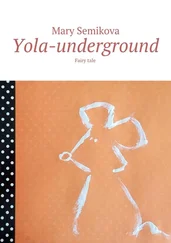And the wall freaking went down.
Goodbye, king. Goodbye, dead knight. Goodbye, trees and horses and hills and sky. Goodbye, secret society of overlords and servility that should’ve died out centuries ago.
Au revoir, LaSalle fairy tale.
Within moments, Trace had reduced the whole water-stained ruin of a wall to rubble. He was breathing hard. His whole body vibrated from the exercise. This felt better than the endorphin rush after a long run, a hard workout, an underground fight.
And then, half-hidden behind clumps of former wall in the settling plaster dust, he saw it. And everything kind of went still.
A…sword?
He crouched down to one knee, his ears ringing in the sudden silence, and reached out—but hesitated to touch the thing. Instead, almost respectfully, he moved clumps of wall off it.
Yeah. That was a sword, all right. Not flared like a pirate’s, like the one his fellow outcast Smith Donnell had gotten hold of a few months back. And not slim and light, like the ones they’d used when he took fencing as a PE credit, back at that damned college he’d hated.
This was a real sword. A warrior’s sword.
It stretched longer and wider than a yardstick, straight as a line. Its hilt formed a cross. Despite never paying attention in history, Trace had a sudden flash of a knight stabbing the sword’s blade into the earth, then kneeling to pray to the temporary cross he’d created.
Kind of like how he was kneeling, right now. Weird coincidence.
“Whoa!” exclaimed Alain, reaching for it. “What the hell?”
“Mine!” snarled Trace. “Go!” And his friends immediately backed off. Probably because Trace sounded insane. This had to be a LaSalle antique. He didn’t want anything to do with the LaSalles. He was a Beaudry.
But sometimes a guy just knew, whether it made sense or not, that something belonged to him. And that sword, lying sealed behind the wall for God knew how long? That sword was his.
His.
Which somehow made him think of the exact person who could answer some questions about it for him.
Click. Down the once tree-lined street, a private investigator sat in his car snapping picture after picture. Grunts in hard hats hauling scrap iron and rotting furniture to the curb? Click. Guys stopping to catch their breath under dead trees before going back into the bungalow? Click.
He smoked. He drank coffee. He peed into a jar. And he photographed. Thank God digital photos were so cheap. He could just save it all onto a DVD, instead of the old days that required prints. He didn’t know what the blue blood who’d hired him cared about this stinking, ugly cleanup; it was still happening all over New Orleans. But if Charles was willing to pay, he was willing to document.
Still, he doubted they’d see anything interesting. Click.
Sibyl reached the top of the apartment’s spiral staircase—a trendy loft bedroom, complete with old brick walls and exposed ductwork—and realized she didn’t know why she’d gone there. She turned in a circle, using the loft’s vantage to worriedly eye the rest of the apartment. Of course it looked perfect, from its concrete floors to its wall-of-glass windows overlooking the Trinity River levee. But nobody would ever believe it was hers.
What had she done? Hadn’t she gone to great lengths to avoid visitors?
A child genius, Sibyl—then Isabel Daine—had gotten a scholarship to the prestigious New Orleans Preparatory Academy by the age of ten. She must have known what secret societies were, even then—could probably have recited the Oxford English Dictionary’s etymology of the phrase. But she would have more easily believed in Santa Claus, which, based on the scientific and temporal improbabilities, she had not.
She’d been too busy studying, too busy “looking ahead,” as her father had always advised. He’d taken a job as a night watchman at the school. Academy students lived far above her family’s middle-class income. By the age of twelve, Sibyl was set to graduate first in her class. She had full rides to Yale, Harvard, even Oxford, hers for the choosing.
Then came the pounding at the front door—she woke to a strobe of red-and-blue lights entering her dark bedroom. A fire at the academy had killed her father.
A fire the police said she’d set.
Evidence came from nowhere—classmates and even professors suddenly labeled her as sullen, resentful, unpredictable. Her? The school paper produced a “rejected editorial” she’d never actually written.
Even her mother had begun to doubt her. “Darling, if you were so unhappy there,” she’d said through the Plexiglas that separated visitors from prisoners.
“I wasn’t,” Isabel had screamed, so the guards ended the visit.
She’d been too young for a jury trial, so the verdict rested on a certain Judge LaSalle. He convicted her of arson and manslaughter. Sibyl lost her graduation with honors. She lost Yale and Harvard and Oxford. She lost her daddy, who’d been so excited for her, and her mother, who couldn’t bear up under legal bills, scandal and doubts. She gave up her very name, her identity.
Sibyl lost everything except her genius. From the girls’ penitentiary, getting computer access to earn her GED and several undergraduate degrees, Sibyl had thrown every bit of her IQ into hacking the truth. She couldn’t tell for sure who had set the fire. But eventually, she learned who had covered it up.
Conspiracy theorists warned of the Masons. The Trilateral Commission. The Bildebergers. But far better hidden lay a secret society called the Comitatus.
Sibyl learned as much as she could from behind bars and then, after her release at the age of eighteen, she uncovered the rest. Peripheral comments in ancient manuscripts. Lost journals she’d uncovered. The testimony of other, frightened victims. Personal correspondence that people like Judge LaSalle thought inaccessible. Nothing was safe from her quest.
Now twenty-two years old, Sibyl considered herself as much an expert on the powerful, world-wide Comitatus as existed outside their control. Name a powerful family, and they’d likely belonged. Capet and Valois. Aragon and Castille. Plantagenet and Stuart. Just in case she’d foolishly thought heroes still existed, after what she’d been through.
But she needed to know more. Comitatus members were wealthy, blue-blooded and influential. But Sibyl meant to take them down—if she could survive that long. So she took precautions.
Sibyl never, ever answered her disposable, untraceable, prepaid cell phone—if she wanted to talk after hearing the message, she would call back. Just because you’re paranoid doesn’t mean they aren’t after you. Especially one small, lonesome woman versus a worldwide secret society. The people who had her latest number, she could count on two hands—as if someone with her IQ needed to finger count.
The people she would call back, she could (figuratively) count on one hand.
Trace Beaudry was the first person she’d not only called back, but invited to visit. Her inability to decide why worried her. She knew why she trusted him; that went back to the risking-his-life-to-save-hers business. It factored in data she’d gathered in the few days she’d spent helping him and his friends, after that rescue. His friends had former Comitatus backgrounds. Their claimed rejection of the society explained both their poverty and their foolish goal to somehow salvage said society. But Trace had no such background at all. Trace was a Beaudry. Despite being a frighteningly good hacker, Sibyl could find no reference to a Comitatus member or family line under that name.
And she’d looked. See: paranoid.
But even meeting non-Comitatus men here, alone, fell under the heading of “Things movies teach you not to do.” Unless the movie was a romance. This wasn’t a romance. Sibyl wouldn’t know what to do with a—
Читать дальше

